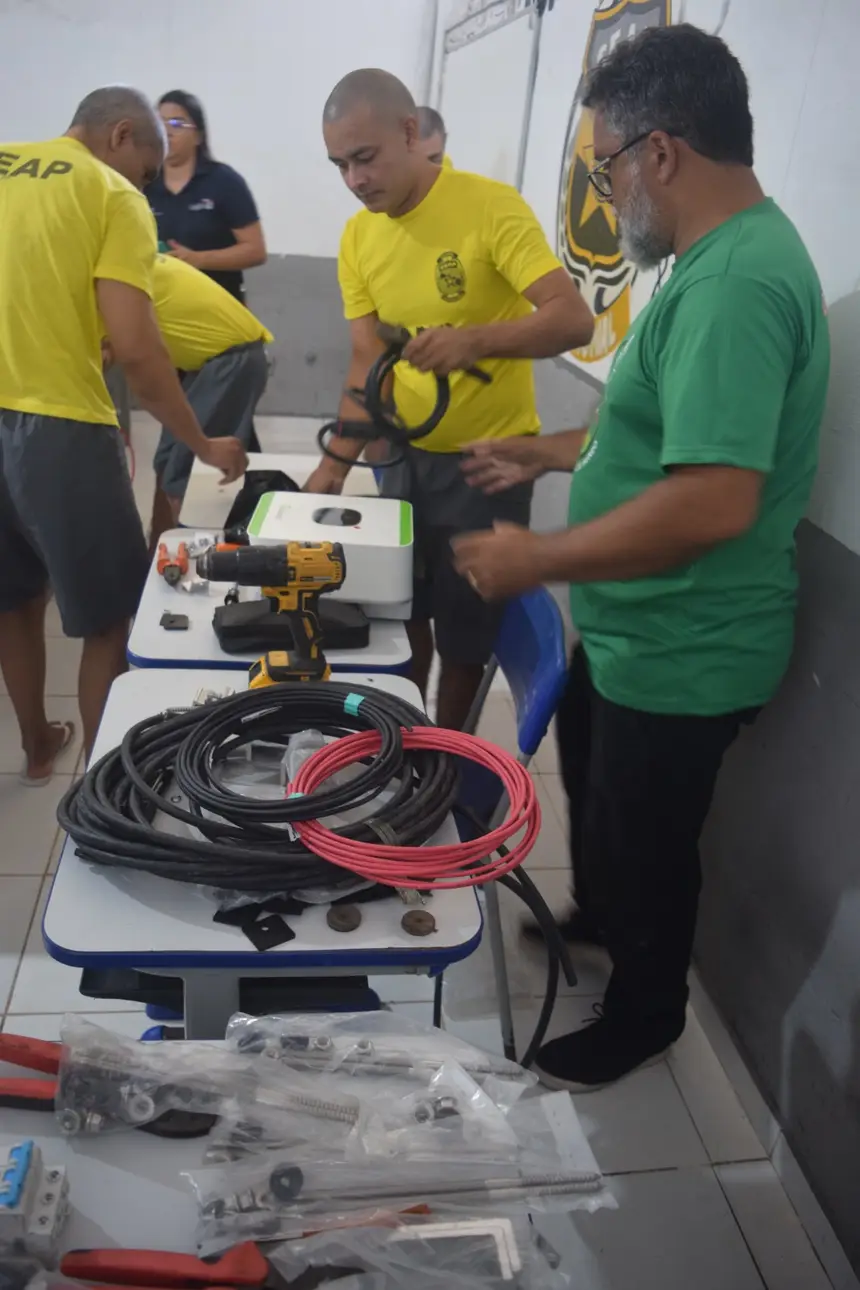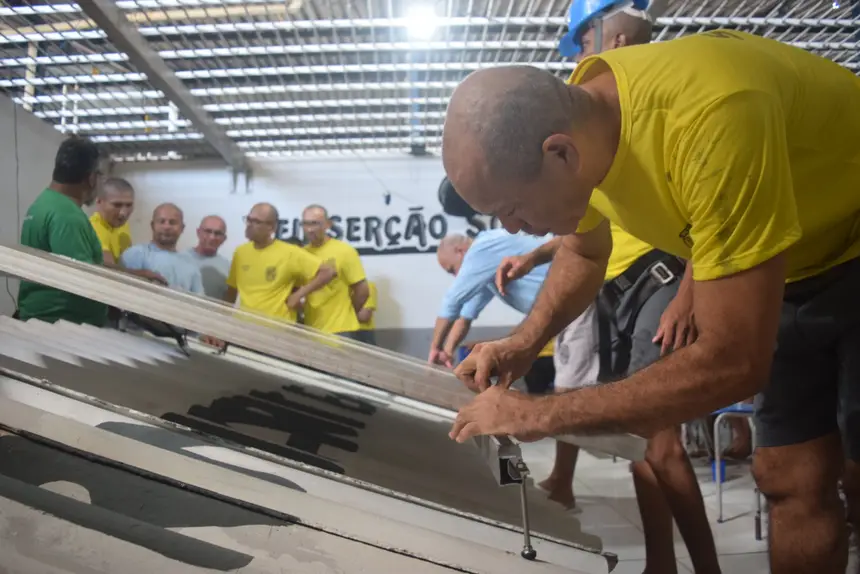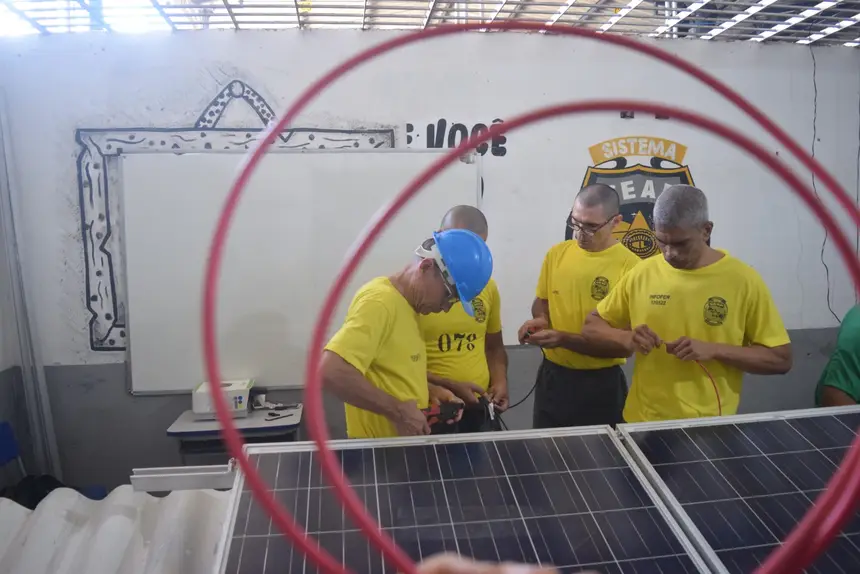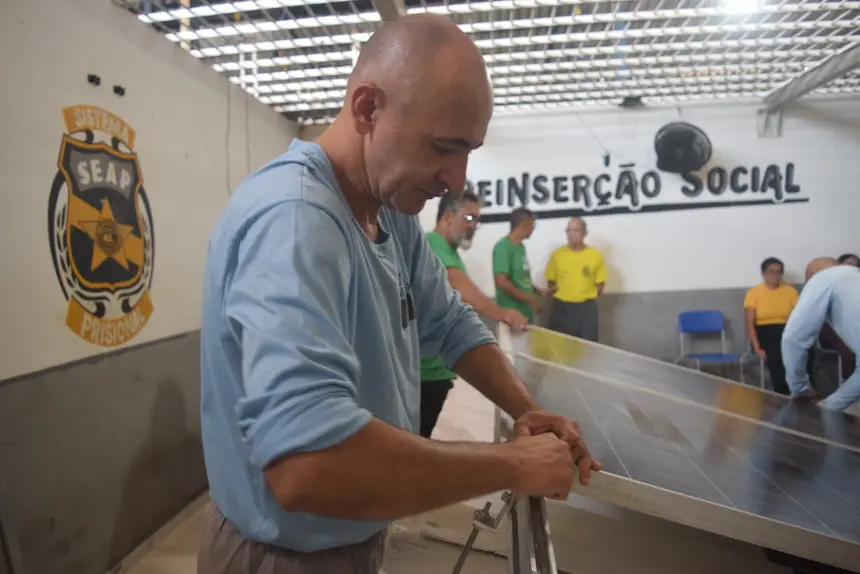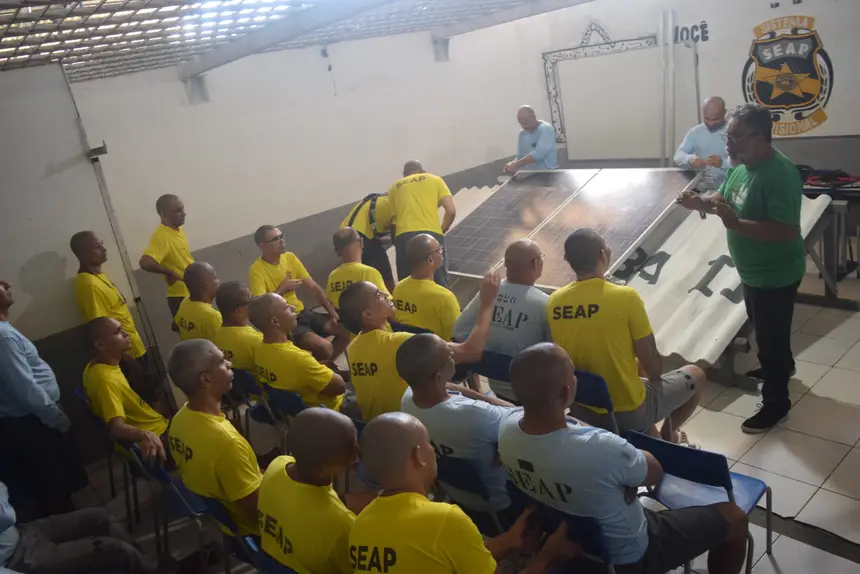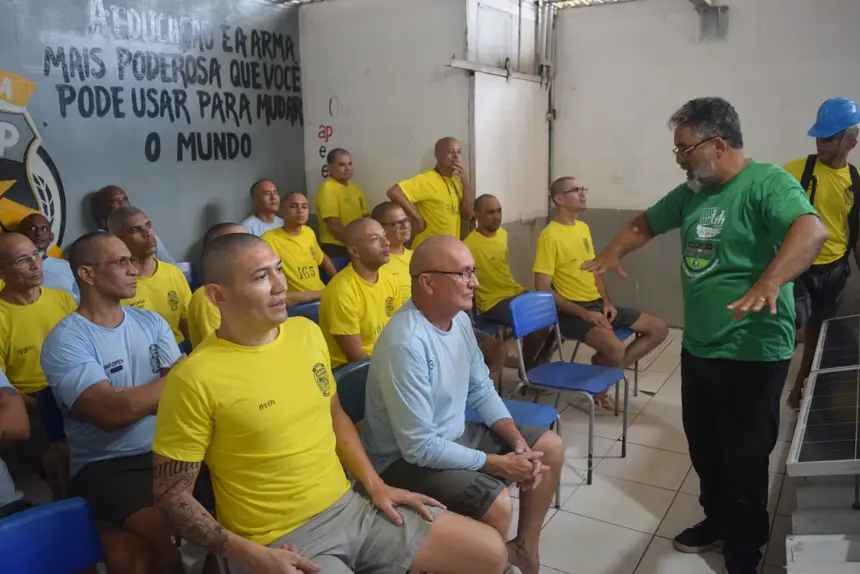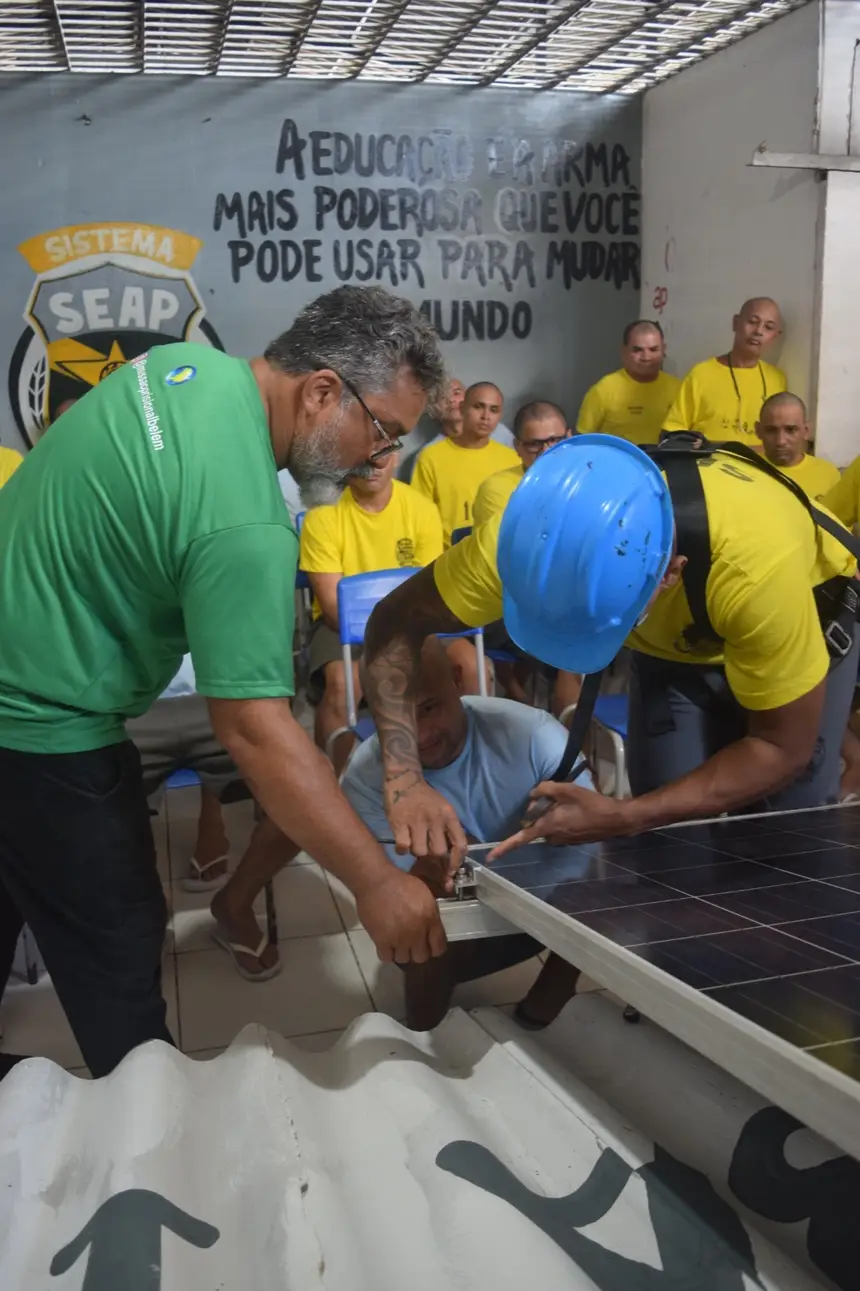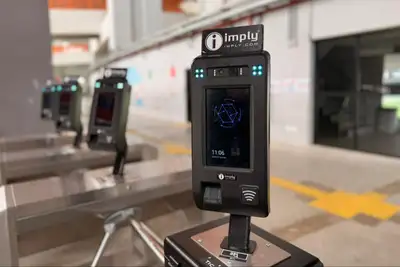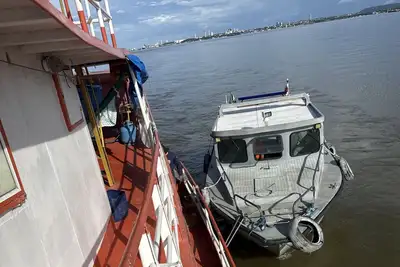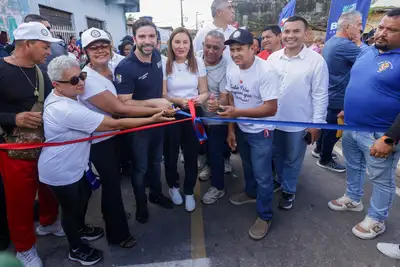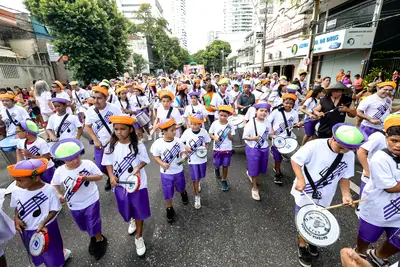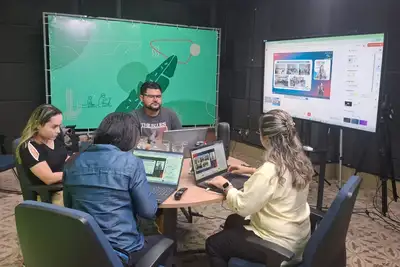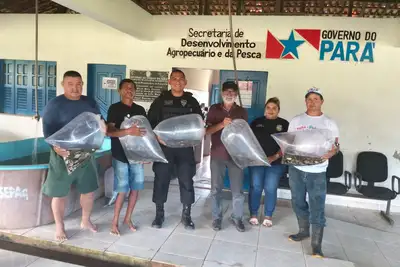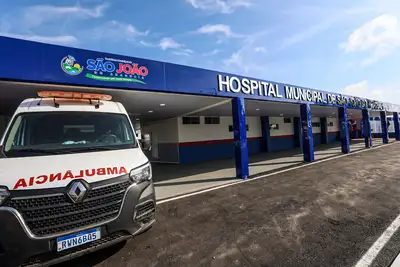Solar energy course in Marituba prison unit strengthens social reintegration
A class of 29 inmates has the opportunity to develop updated skills and techniques with the aim of entering the job market after serving their sentence
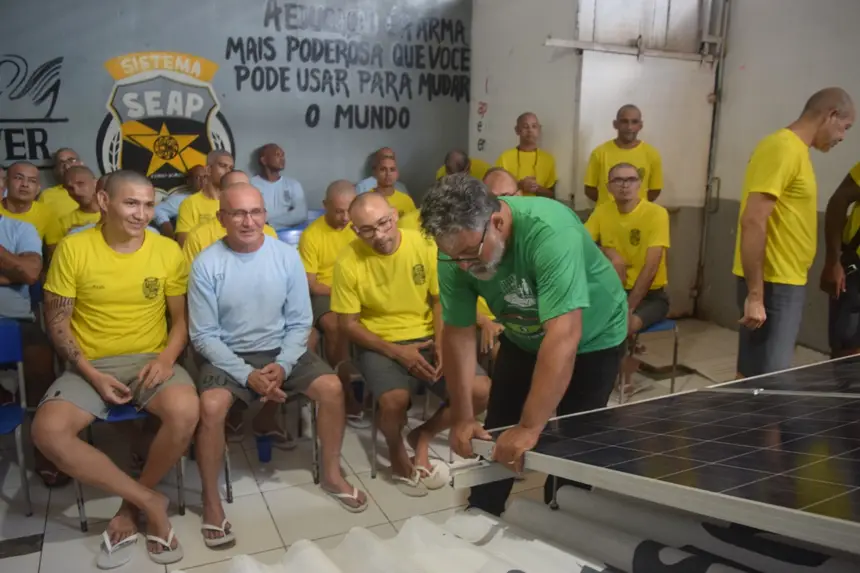
The use of solar energy is becoming increasingly frequent due to savings on electricity costs, lower carbon emissions, and independence from the power grid, among other benefits. In this context, the State Secretariat for Penitentiary Administration (Seap), through the Professional Education Management (GEP), in partnership with the prison mission of the Assembly of God Church, completed the Solar Photovoltaic System Installer course at the Custody and Reintegration Unit of Marituba II (UCR Marituba II), in the Metropolitan Region of Belém.
The goal is to provide inmates with the opportunity for professional growth, presenting current work techniques with a good employability rate. In the prison unit, the inmates received theoretical and practical classes, with a workload of 40 hours, for the application of solar panels, aiming for effective training for the job market after serving their sentence.
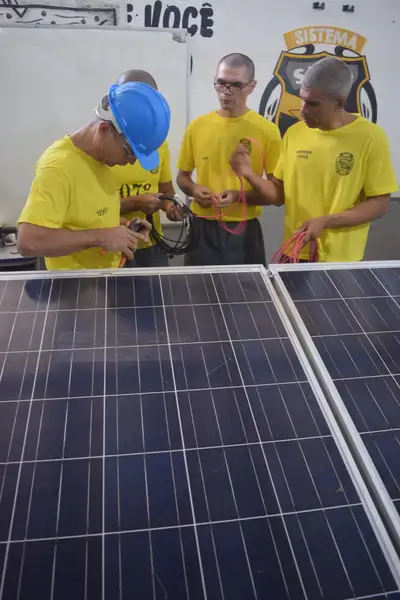
Reintegration - With a more discerning view of life in prison, the reintegration technician Margarete Silva da Silva assesses that the activity adds significant benefits to the lives of the inmates. “Courses inside the prison are crucial for resocialization and reducing recidivism, offering inmates the opportunity to acquire knowledge, develop skills, and prepare for a successful reintegration into society,” she emphasized.
In addition to professional learning, the activity manages to stimulate a responsible life purpose after prison. The technician also spoke about the positive impact on the inmates' family nucleus and how the activity generates good expectations. “We notice that when there are visits, family members always ask a lot. Everyone is happy and curious to know the inmate's progress in the course. It is very rewarding,” said Margarete Silva.
Teaching – During the class, instructors Fábio Monteiro and Davi Oliveira review technical content and appropriate strategies for what each client needs. “Our students learned to size a photovoltaic system and identify the ideal project to meet their client. They learned to install from start to finish. They learned the difference between the ‘string inverter’ and the ‘micro inverter’. Now, they are ready to serve clients outside and size the best project for each one,” informed Fábio Monteiro.
For Ronan Miranda, an inmate at UCR Marituba II, the solar energy course is a learning experience
that adds to the knowledge already acquired in other courses related to the electrical area, which he intends to put into practice in the social reintegration process. “I have quite a few courses in the electrical area, but this one focused on solar energy is new. And it also brought practical classes. It was a great learning experience because these are specific things that we learn more in practice. So, the practice was a very good thing, very interesting for us to learn about micro inverters and inverters, solar energy, which is a sustainable energy, an energy that, in the future, our state of Pará will be fully adapted to this system,” said the inmate.
Text: Fernanda Ferreira, intern at NCS/Seap



